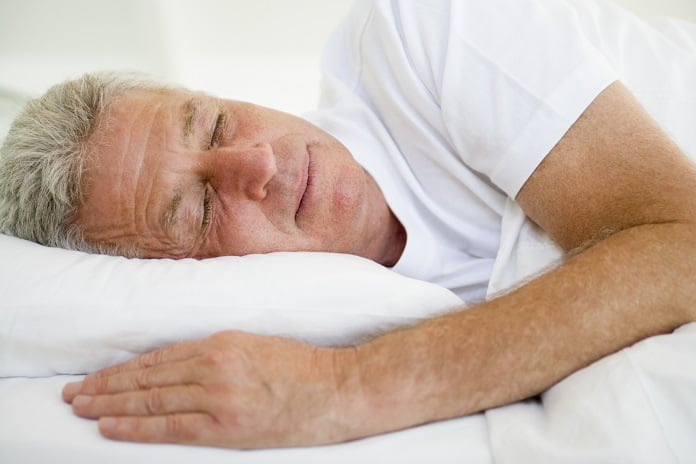Researchers investigated whether an EEG sleep test for dementia can help to identify individuals with or at risk of developing the condition.
Dementia, a brain disease that causes a progressive decline in memory, thought processing, behaviour and everyday functioning, is an increasing problem worldwide. Usually affecting older adults, the condition not only leads to disability and loss of independence in the sufferers but also significantly impacts the lives of their families. Current diagnostic tests, such as brain scans, are expensive, of limited availability and require hospital attendance. A simple, cost-effective test that could identify those with or at risk of dementia would be a useful tool. Researchers at the Massachusetts General Hospital, USA, have been investigating the use of electroencephalography (EEG), a way of measuring electrical activity in the brain by placing electrodes on the scalp, to help identify those with or at risk of dementia. The results of their most recent study are published in JAMA Network Open.
EEG patterns during sleep change with aging
Brain electrical activity patterns change during daily activities and sleep. As we age, sleep becomes more fragmented and this is reflected in the brainwave patterns recorded using EEGs. In people with dementia, sleep is even more fragmented, and examining sleep EEG recordings could be a useful way to spot brain changes linked to the condition. Researchers at Massachusetts General Hospital, USA, have been investigating this possibility and have already developed a brain age index (BAI) measure. This technique uses artificial intelligence and a large set of sleep EEG data to calculate the difference between the brain age reflected by an individual’s sleep EEG pattern recording and the actual chronological age of the patient. A higher BAI reflects a deviation from normal brain aging and could indicate the presence or risk of dementia.
To test whether sleep EEG BAI measurements might be a good test for dementia, the researchers analyzed over 5,000 sleep EEGs from over 4,000 individuals. These were grouped into: 81 dementia patients, 44 individuals with mild cognitive impairment, 1,075 individuals who had some symptoms but no diagnosis or impairment, and 3,024 individuals without dementia. They computed the BAI values based on the sleep EEG recordings and compared the average BAI across the different groups.
BAI values increased across the groups as cognitive impairment and dementia symptoms increased. Patients with dementia had an average BAI value about four years older than those without dementia.
BAI measure calculated from sleep EEG could diagnose or predict dementia
The study findings suggest that BAI values calculated from sleep EEG recordings show promise as a test for dementia. BAI could be a used as both a screening tool and as a way to monitor dementia progression.
“This is an important advance, because before now it has only been possible to measure brain age using brain imaging with magnetic resonance imaging [a type of brain scan], which is much more expensive, not easy to repeat and impossible to measure at home.” said Elissa Ye, MSc, the lead author of the study. With the increasing availability of inexpensive technologies such as headbands making EEG testing more easily accessible, sleep EEG tests could be performed in primary care or even home settings.
“Because it is quite feasible to obtain multiple nights of EEG, even at home, we expect that measuring BAI will one day become a routine part of primary care, as important as measuring blood pressure,” said Dr. Alice Lam, the study’s co-author.
Written by Julie McShane, MA MB BS
References
1. Ye E, Sun H, Leone M, et al. Association of sleep electroencephalography-based brain age index with dementia. JAMA Network Open 2020;3(9):e2017777357, doi:10.1001/jamanetworkopen.2020.17357.
2. Massachusetts General Hospital, Press release Sept 28, 2020. Noninvasive sleep test may help diagnose and predict dementia in older adults. https://www.eurekalert.org/pub_releases/2020-09/mgh-nst092420.php



